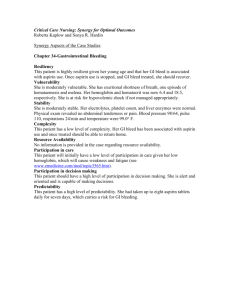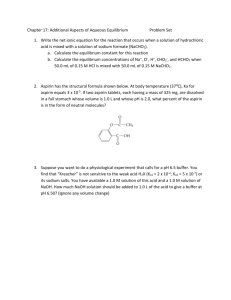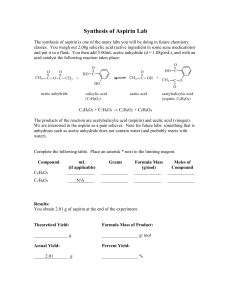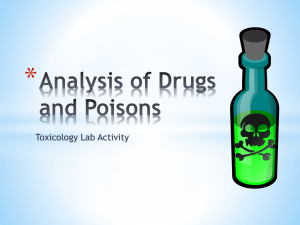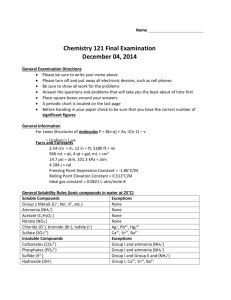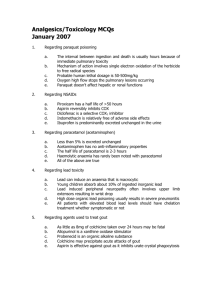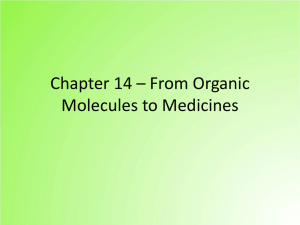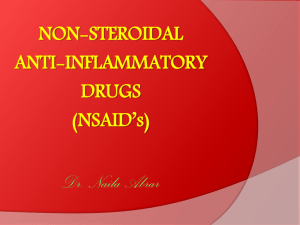Aspirin and Prevention of Cardiovascular Disease
advertisement
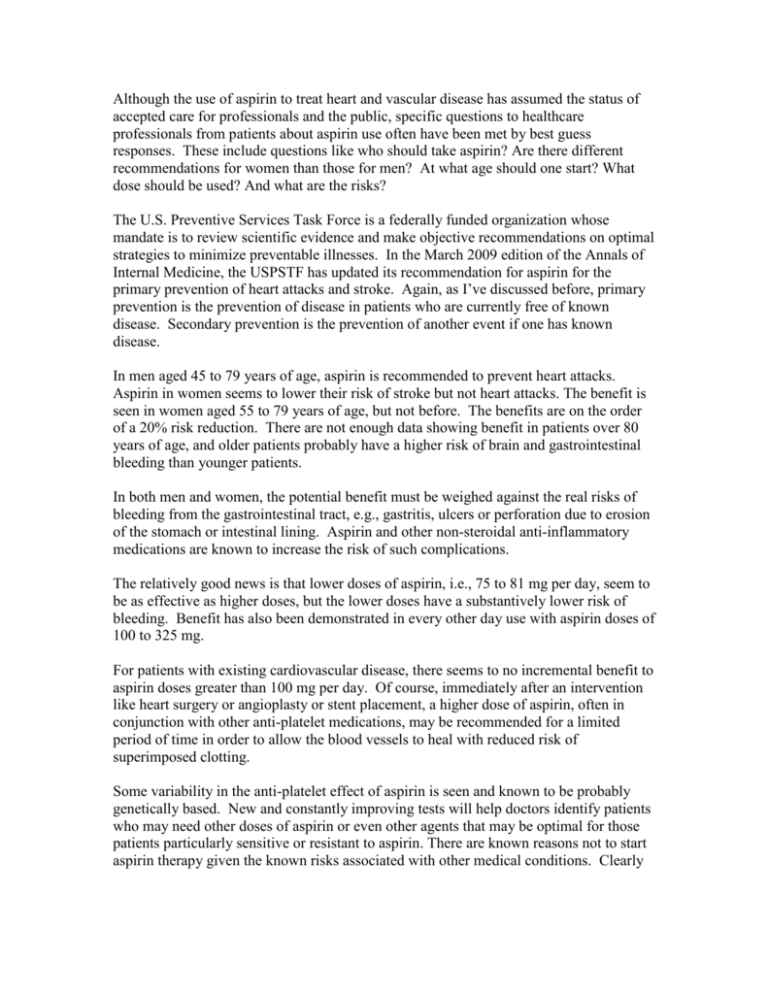
Although the use of aspirin to treat heart and vascular disease has assumed the status of accepted care for professionals and the public, specific questions to healthcare professionals from patients about aspirin use often have been met by best guess responses. These include questions like who should take aspirin? Are there different recommendations for women than those for men? At what age should one start? What dose should be used? And what are the risks? The U.S. Preventive Services Task Force is a federally funded organization whose mandate is to review scientific evidence and make objective recommendations on optimal strategies to minimize preventable illnesses. In the March 2009 edition of the Annals of Internal Medicine, the USPSTF has updated its recommendation for aspirin for the primary prevention of heart attacks and stroke. Again, as I’ve discussed before, primary prevention is the prevention of disease in patients who are currently free of known disease. Secondary prevention is the prevention of another event if one has known disease. In men aged 45 to 79 years of age, aspirin is recommended to prevent heart attacks. Aspirin in women seems to lower their risk of stroke but not heart attacks. The benefit is seen in women aged 55 to 79 years of age, but not before. The benefits are on the order of a 20% risk reduction. There are not enough data showing benefit in patients over 80 years of age, and older patients probably have a higher risk of brain and gastrointestinal bleeding than younger patients. In both men and women, the potential benefit must be weighed against the real risks of bleeding from the gastrointestinal tract, e.g., gastritis, ulcers or perforation due to erosion of the stomach or intestinal lining. Aspirin and other non-steroidal anti-inflammatory medications are known to increase the risk of such complications. The relatively good news is that lower doses of aspirin, i.e., 75 to 81 mg per day, seem to be as effective as higher doses, but the lower doses have a substantively lower risk of bleeding. Benefit has also been demonstrated in every other day use with aspirin doses of 100 to 325 mg. For patients with existing cardiovascular disease, there seems to no incremental benefit to aspirin doses greater than 100 mg per day. Of course, immediately after an intervention like heart surgery or angioplasty or stent placement, a higher dose of aspirin, often in conjunction with other anti-platelet medications, may be recommended for a limited period of time in order to allow the blood vessels to heal with reduced risk of superimposed clotting. Some variability in the anti-platelet effect of aspirin is seen and known to be probably genetically based. New and constantly improving tests will help doctors identify patients who may need other doses of aspirin or even other agents that may be optimal for those patients particularly sensitive or resistant to aspirin. There are known reasons not to start aspirin therapy given the known risks associated with other medical conditions. Clearly this means that the final decision about the use, dose, risks and timing of aspirin therapy needs to be determined by discussion with your personal physician. Dr. Irving Kent Loh is Program Director for Cardiovascular Services, Ventura Heart and Vascular Institute, Community Memorial Healthcare System, and medical director of the Ventura Heart Institute in Thousand Oaks, CA. His e-mail address is drloh@venturaheart.com.
